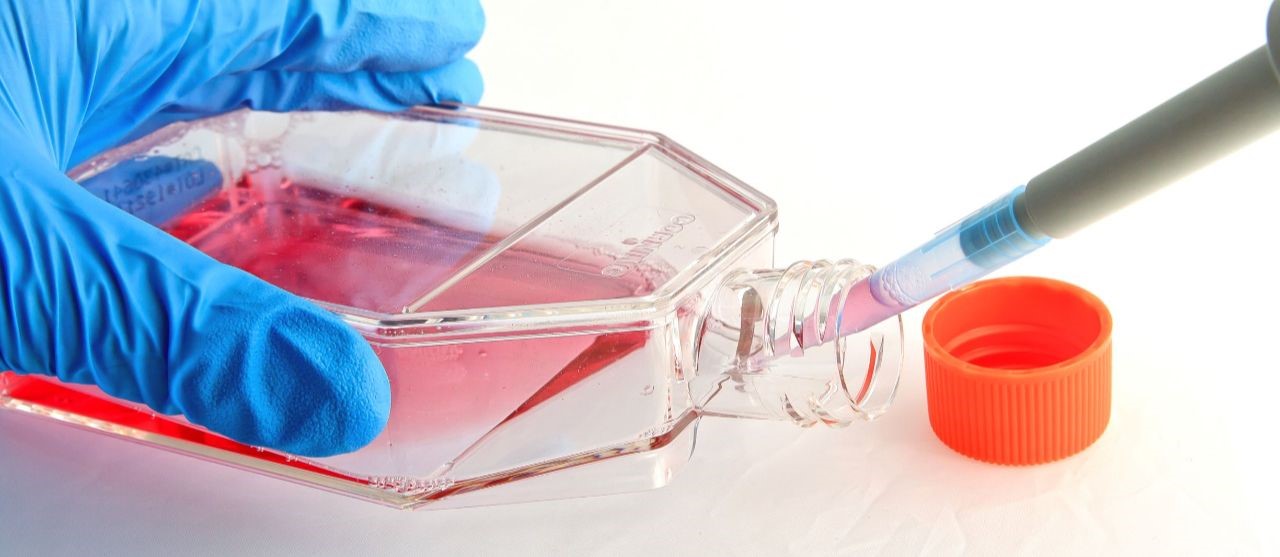We specialise in studying bacteria involved in disease-causing processes. Our focus lies in identifying innovative diagnostic methods and developing advanced technologies to support new treatment strategies. Together, we aim to reduce the impact of these pathogens on human health.
Our recent publications
- Free DNA partially clarifies discrepancies between qPCR and the conventional phage quantification method - PMC
- Evaluation of the stability of Bacteriophages in different solutions suitable for the production of magistrap preparations in Belgium
- Development of a cPCR platform for quantification of the five bacteriophages within bacteriophage coctail 2 (BFC2) | Scientific Reports
Projects and results.
(1).png)
PMD4U
The PMD4U project is developing an innovative device for the rapid, accurate detection of bacteriophages – crucial for applications in food safety, crop protection, and antibiotic alternatives. After successful results in previous projects, we are now taking the step toward creating a spin-off. This will offer a ready-to-use device, software, and microfluidic chips. The method is faster, cheaper, and more sustainable than traditional techniques.
(1).png)
Dry lab
With this project, we are expanding our research infrastructure with a freeze dryer, a protein purification system, and an -80°C freezer. This strengthens our practice-oriented research into phage therapy and sustainable wastewater treatment. The equipment enables long-term storage of phages, supports personalised treatments, and opens up new avenues for protein research and commercial applications.
(1).png)
Improvement of the phage selection protocol
In this project, we are improving the phage selection protocol for cystic fibrosis patients with multidrug-resistant lung infections. Phage therapy offers a valuable alternative to antibiotics but requires precise selection of effective phages. In collaboration with LBR (UGent) and the cystic fibrosis centre at UZ Gent, we are investigating whether we can test bacterial sensitivity directly on patient sputum. This approach more closely mimics the real lung environment than traditional phage sensitivity testing, thereby increasing the chances of a successful treatment.
(1).png)
Rapid molecular detection and quantification of phages
In this project, we are developing a qPCR-based method to rapidly and accurately measure phage load during phage therapy. This precise monitoring is essential for clinical studies, where understanding viral and bacterial load helps evaluate the effectiveness of treatment. Currently, this is still done using slow and inaccurate culture methods. Our focus is on optimising phage DNA extraction and on developing qPCR tests for the five phages in the BacterioFaag2 cocktail, targeting severe burn infections caused by A. baumannii, P. aeruginosa en S. aureus, among others.
"Healthcare institutions, laboratories, and companies can turn to us for advice and workshops in the areas of biomedical analysis, hand hygiene, wound care, communication, and teamwork."
Els Van Mechelen, coordinator
Get to know our experts.
(1).png)
Els Van Mechelen
Medical bacteriology, phage therapy, DNA technology, communication and teamwork
(1).png)
Stefan Vermeulen
Phage therapy, human genetics, molecular diagnostics, primer design, bioinformatics

(1).png)
(1).png)
(1).png)